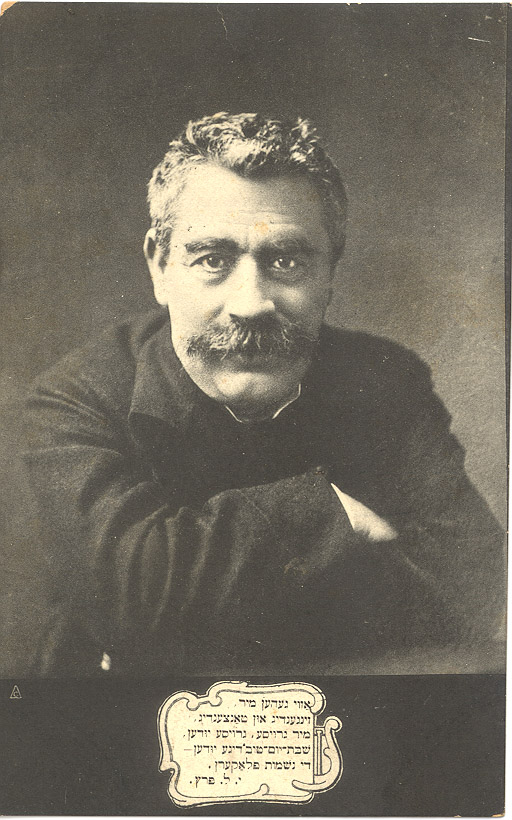Jizchok Leib Perez war ein jiddischsprachiger Schriftsteller aus Polen, der allerdings auch auf Polnisch und Hebräisch schrieb.
Im seinerzeitigen Polen wurde sein Name als Icchok Lejbusz Perec wiedergegeben, darüber hinaus gibt es bedingt durch Transkriptionen, Transliterationen oder Anpassungen an die in anderen Diasporen übliche Vornamenschreibungen viele weitere Namensformen: Jizchak Leib Perez, Isaak Leib Perez, Jizchok Lejb Perez, Itzhok Lejb Perez, Isaak Leib Peretz usw. Als Feuilletonist benutzte er die Pseudonyme Luzifer, Lez und Ben Tamar.
Neben Mendele Moicher Sforim und Scholem Alejchem gehört Perez zu den Begründern der modernen jiddischen Literatur sowie der jüdischen Belletristik überhaupt. Er gilt „als einer der bedeutendsten psychologisierenden Dichter der Weltliteratur und gleichzeitig als der hervorragendste jiddische Dramatiker“.Perez verfasste sein literarisches Werk in polnischer, hebräischer und in jiddischer Sprache. Sein Frühwerk ist noch ganz in der jüdischen Emanzipation und Aufklärung verhaftet. Nach der gescheiterten Revolution von 1905 thematisierte er in realistischen Novellen die Lebensprobleme der chassidischen Juden in Osteuropa. In seinem Spätwerk trat diese Resignation immer mehr in den Hintergrund, zugunsten seiner symbolhaften Dramen, in denen die Mystik einen sehr großen Stellenwert einnahm.
Wikipedia
✵
18. Mai 1852 – 21. März 1915
